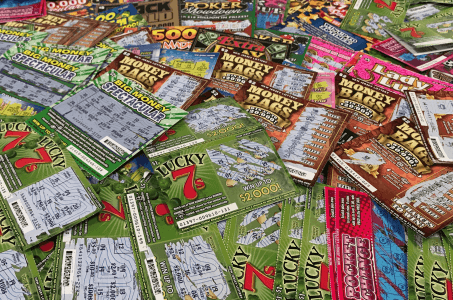Sun City Resort Not Liable for Self-Excluded Gambler’s $323K Losses on Wife’s Bank Card
Posted on: June 6, 2022, 02:13h.
Last updated on: June 6, 2022, 02:49h.
A South African gambler who self-excluded from the Sun City Resort in the country’s North West Province cannot sue the casino for allowing him to blow R5 million (US$323,000) using his wife’s bank card.

That’s according to a judge in Johannesburg, who ruled last week that the casino was not liable to repay the man.
Businessman Suhail Essack and his wife, Naseera Cassim, argued the casino’s operator, Sun International, was negligent in allowing Essack to gamble the money.
Essack is a compulsive gambler who banned himself from the casino in 2017 by a court application under Section 14 of South Africa’s Gambling Act.
Duty of Care
According to the couple’s lawsuit, Sun City owed him a “duty of care to ensure that he does not obtain access to its casino for purposes of engaging in gambling activities.”
The plaintiffs argued that the casino has a responsibility to notify the police or evict an individual whose name appears on the National Gambling Board’s register of self-excluded persons.
But Acting Judge Andy Bester wasn’t buying it. While he acknowledged the Gambling Act placed certain obligations on the casino, he determined Essack could not be absolved of his personal responsibilities, in spite of his condition.
Sight should not be lost of the fact that the first plaintiff is the author of his own misfortune. Having voluntarily placed himself on the list of people excluded from gambling, he nonetheless went to the Sun City Casino and, of his own volition, lost a substantial amount of money,” wrote Bester in his ruling.
“The plaintiff’s proposition implies that a compulsive gambler may retain his winnings when transgressing the regulations, but hold the licensee of the gambling establishment liable for his losses. Such a lopsided approach does not serve the purpose of the provision, and is not in the public interest,” he added.
Bester said that South Africa’s gambling regulations did not provide that Essack should be afforded a civil remedy to claw back his losses.
Criminal Trespass
In the US, casinos can face fines or even license suspension for failing to comply with state regulations related to self-exclusion programs. But most states limit disciplinary action to violations linked to the mishandling of sensitive data and willfully or inadvertently marketing to excluded individuals.
However, customers whom the casino identifies as excluded must be removed from the premises and could be subject to prosecution for criminal trespass.
In most states, the forfeiture of any winnings in this instance is a condition of joining the self-exclusion program.
Related News Articles
Nebraska Lottery Won’t Pay Out on 405 Misprinted Scratch-Off Tickets
Ameristar Casino Banned Gambler Cannot Collect Jackpot in Iowa
Most Popular
Mirage Las Vegas Demolition to Start Next Week, Atrium a Goner
Where All the Mirage Relics Will Go
Most Commented
-
Bally’s Facing Five Months of Daily Demolition for Chicago Casino
— June 18, 2024 — 12 Comments -
Chicago Pension Mess Highlights Need for Bally’s Casino
— July 2, 2024 — 5 Comments
















No comments yet